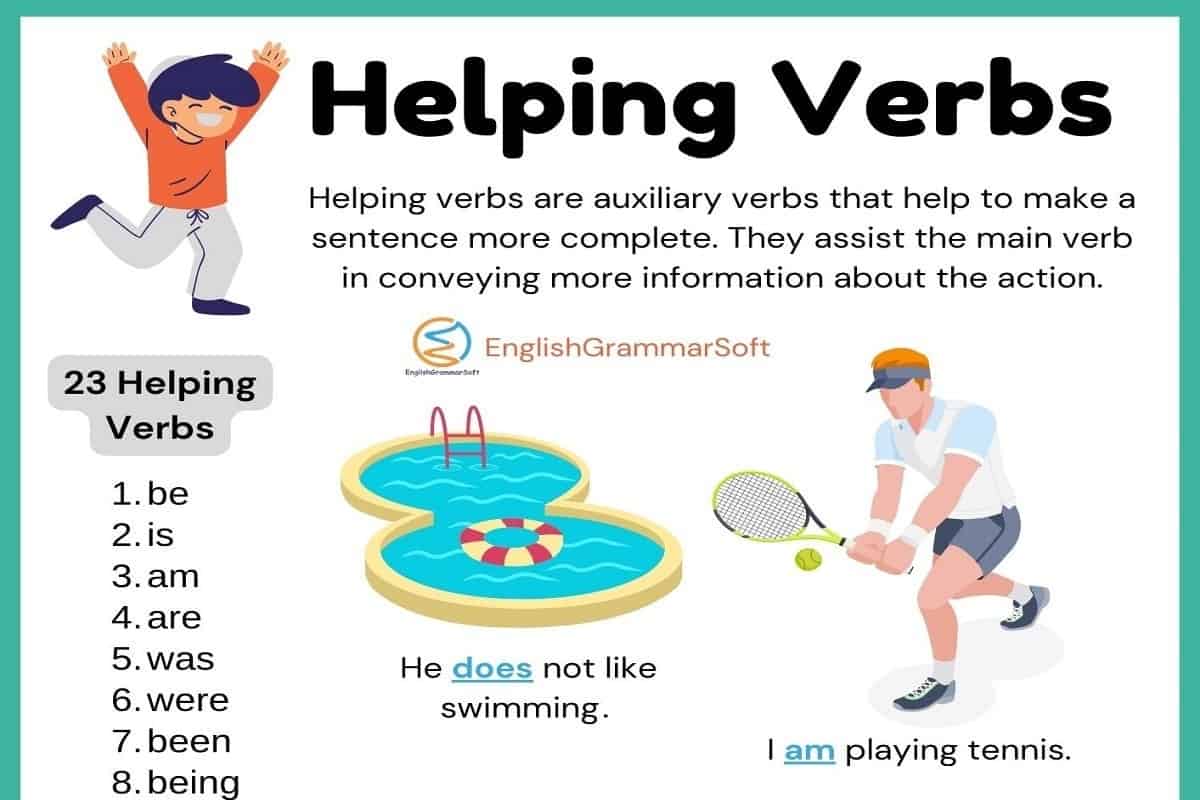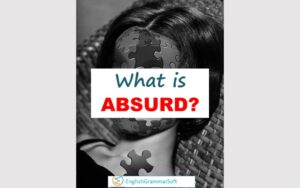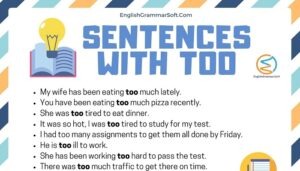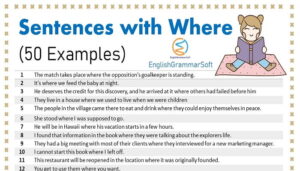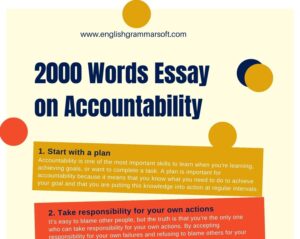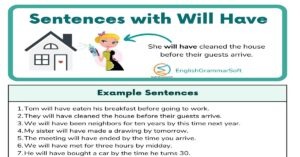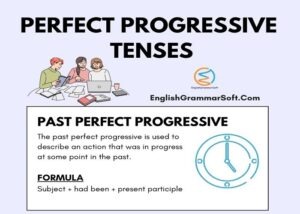Helping Verbs (Auxiliary Verbs) in English
Helping verbs are auxiliary verbs that help to make a sentence more complete. They assist the main verb in conveying more information about the action.
The most common helping verbs are do, be, have and will. These words can appear in many different tenses, such as present or past. For example, “I am going to the store” and “I went to the store yesterday.” The helping verb is always present tense when used with another verb in future form.
What are helping verbs?
A helping verb (also called an auxiliary verb) is a verb that precedes the main verb in a sentence. The main verb is also known as the principal verb.
Helping verbs are used to express tense, ability, or condition. There are only a few helping verbs: be, do, and have, etc. These three helping verbs are used to form the progressive and perfect tenses. Sometimes, the main verb is a form of one of these verbs:
- be–am, is, are, was, were
- do–does, did
- have–has, had
Here are some examples of sentences with helping verbs:
- I am playing tennis. In this sentence, the helping verb am expresses present tense. Playing is the principal verb.
- They do not play well together. In this sentence, the helping verb do expresses negation. Playing is the principal verb.
- He is going to school. In this sentence, the helping verb is expresses future tense. Going is the principal verb.
How to Use Helping Verbs with Examples?
Most verbs in English are what are called “action verbs.” This means that they describe an action that is taking place. For example, the verb “read” describes the action of reading.
There are, however, a small group of verbs that we call “helping verbs.” These verbs do not describe any particular action. Instead, they help to make the meaning of other verbs clearer or more specific. For example, the verb “can” is a helping verb that is used with the main verb “read”
We use helping verb to form questions and negatives.
- Can you read this?
- You cannot (can’t) read this.
We use it to express the ability.
- I can read French.
- The dog can’t (cannot) read.
We also use helping verbs to express possibility.
- This could be the answer.
- This couldn’t be true.
Helping Verbs of All Tenses
This table contains the list of helping verbs. See the examples of their conjugation to express the different tenses.
| Sr.# | Helping Verb | Tenses | Examples |
|---|---|---|---|
| 1 | do/does | Simple Present Tense | Do you eat apples daily? |
| 2 | is/am/are | Present Continuous Tense | You are eating apples. |
| 3 | has/have | Present Perfect Tense | You have eaten apples. |
| 4 | has been | Present Perfect Continuous Tense | You have been eating apples for 10 minutes |
| 5 | did | Simple Past Tense | Did you eat apple? |
| 6 | was/were | Past Continuous Tense | You were eating apple. |
| 7 | had | Past Perfect Tense | You had eaten apple. |
| 8 | had been | Past Perfect Continuous Tense | You had been eating apple for 10 minutes. |
| 9 | will | Simple Future Tense | You will eat apple. |
| 10 | will be | Future Continuous Tense | You will be eating apple tomorrow. |
| 11 | will have | Future Perfect Tense | You will have eaten apple. |
| 12 | will have been | Future Perfect Continuous Tense | You will have been eating apple for many days. |
Helping Verb List
These are 23 helping verbs
- Be
- is
- am
- are
- was
- were
- been
- being
- has
- have
- had
- can
- could
- shall
- should
- must
- may
- might
- will
- would
- do
- does
- did
Why do we use helping verbs?
People often overlook the importance of helping verbs, but they can actually be very useful. They can add meaning to a sentence, change the tense, or make it more polite. Here are some examples of why we use helping verbs.
- To show ability : I can speak French.
- To show possibility : He might be late.
- To show certainty : She must be the new teacher.
- To express necessity : We need to leave now.
Helping Verb Examples
Here are 10 examples of helping verbs.
- I am studying for my test.
- He does his homework every day.
- They have a lot of books.
- You should study more.
- We could go to the park later.
- I might have time after class to help you.
- I may go to the movie tonight.
- I have been to the museum three times this week.
- You should not be afraid of making mistakes.
- Can you run a marathon?
- May I offer you something to drink?
- We must learn new vocabulary every day.
- You should practice your English.
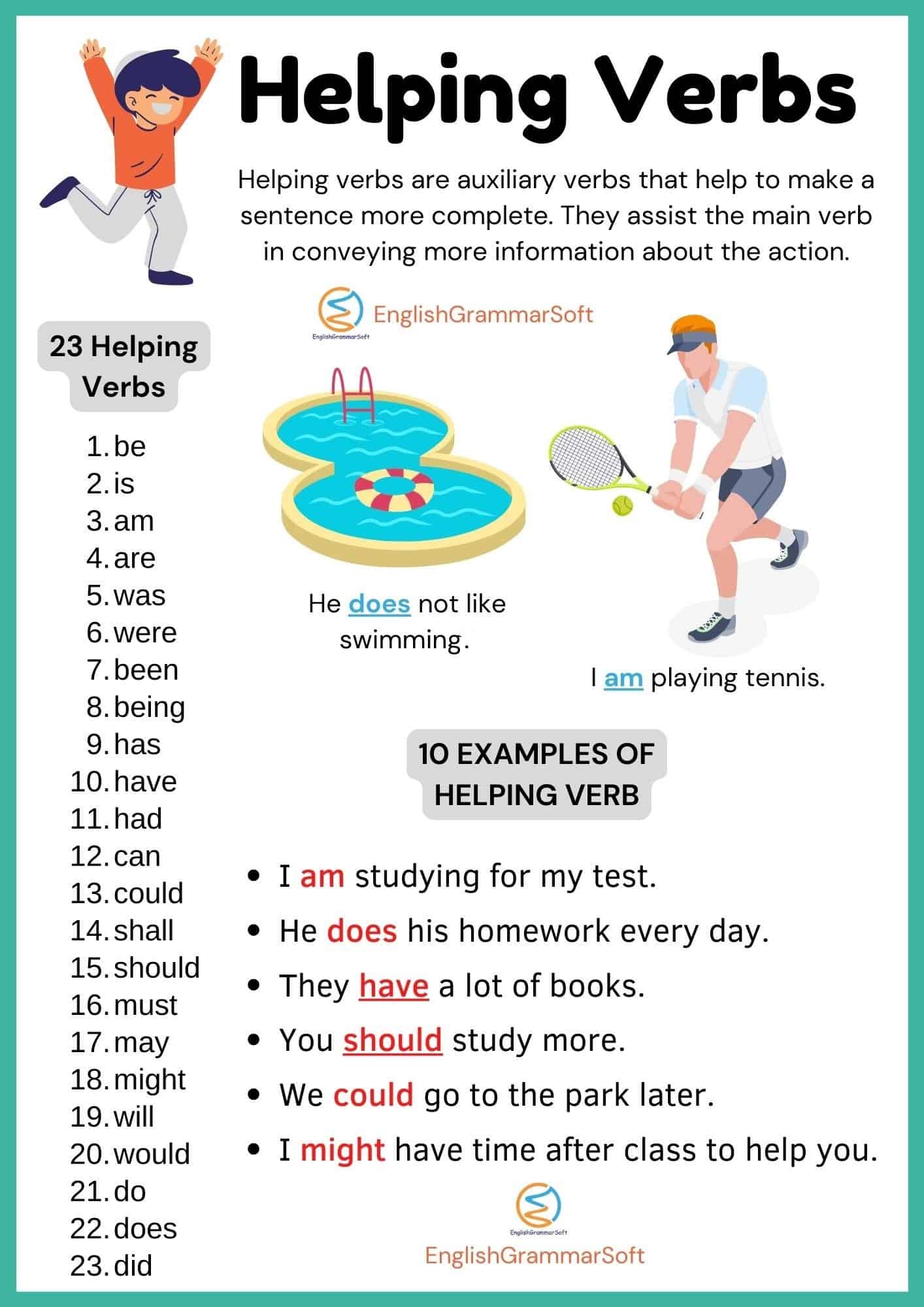
More to read
